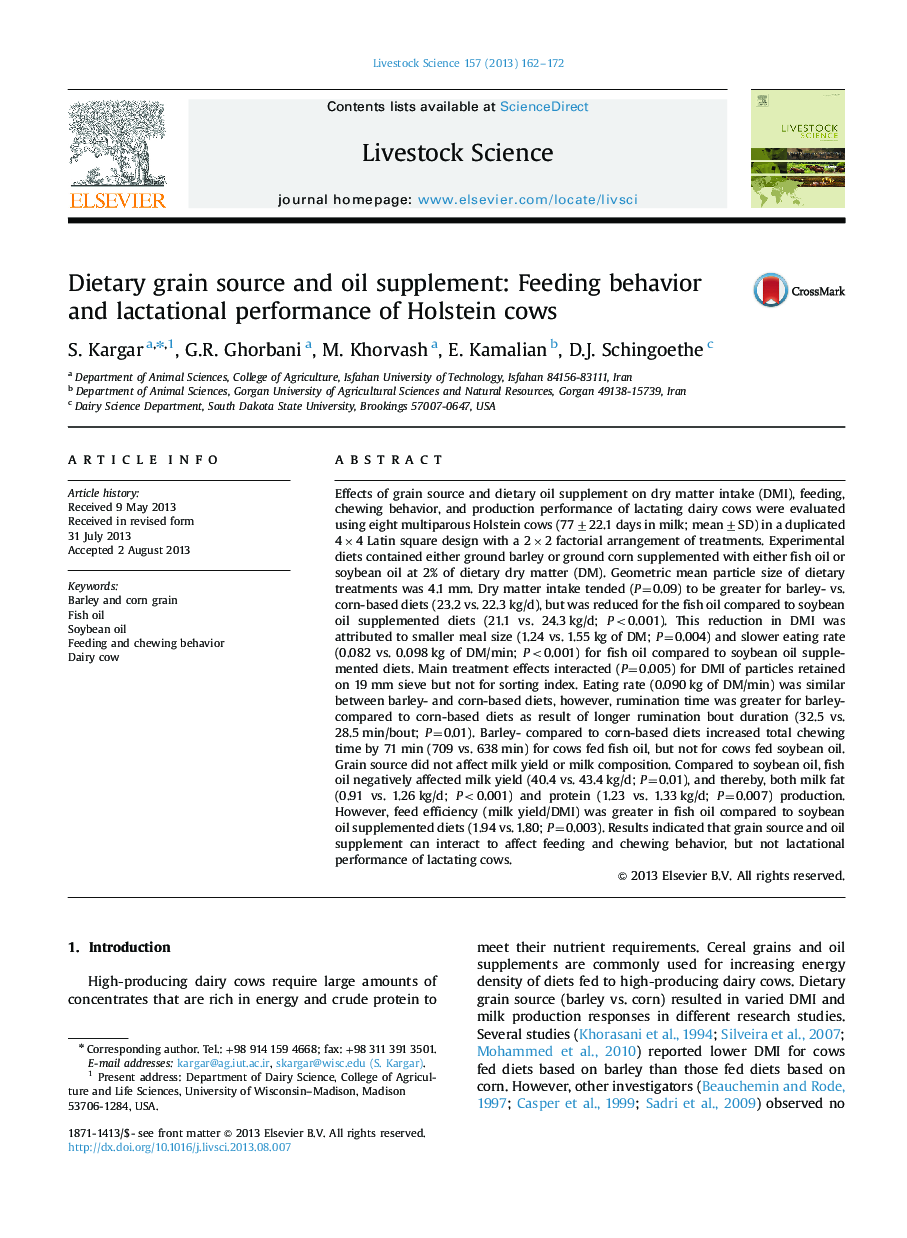| Article ID | Journal | Published Year | Pages | File Type |
|---|---|---|---|---|
| 5790359 | Livestock Science | 2013 | 11 Pages |
Effects of grain source and dietary oil supplement on dry matter intake (DMI), feeding, chewing behavior, and production performance of lactating dairy cows were evaluated using eight multiparous Holstein cows (77±22.1 days in milk; mean±SD) in a duplicated 4Ã4 Latin square design with a 2Ã2 factorial arrangement of treatments. Experimental diets contained either ground barley or ground corn supplemented with either fish oil or soybean oil at 2% of dietary dry matter (DM). Geometric mean particle size of dietary treatments was 4.1 mm. Dry matter intake tended (P=0.09) to be greater for barley- vs. corn-based diets (23.2 vs. 22.3 kg/d), but was reduced for the fish oil compared to soybean oil supplemented diets (21.1 vs. 24.3 kg/d; P<0.001). This reduction in DMI was attributed to smaller meal size (1.24 vs. 1.55 kg of DM; P=0.004) and slower eating rate (0.082 vs. 0.098 kg of DM/min; P<0.001) for fish oil compared to soybean oil supplemented diets. Main treatment effects interacted (P=0.005) for DMI of particles retained on 19 mm sieve but not for sorting index. Eating rate (0.090 kg of DM/min) was similar between barley- and corn-based diets, however, rumination time was greater for barley- compared to corn-based diets as result of longer rumination bout duration (32.5 vs. 28.5 min/bout; P=0.01). Barley- compared to corn-based diets increased total chewing time by 71 min (709 vs. 638 min) for cows fed fish oil, but not for cows fed soybean oil. Grain source did not affect milk yield or milk composition. Compared to soybean oil, fish oil negatively affected milk yield (40.4 vs. 43.4 kg/d; P=0.01), and thereby, both milk fat (0.91 vs. 1.26 kg/d; P<0.001) and protein (1.23 vs. 1.33 kg/d; P=0.007) production. However, feed efficiency (milk yield/DMI) was greater in fish oil compared to soybean oil supplemented diets (1.94 vs. 1.80; P=0.003). Results indicated that grain source and oil supplement can interact to affect feeding and chewing behavior, but not lactational performance of lactating cows.
